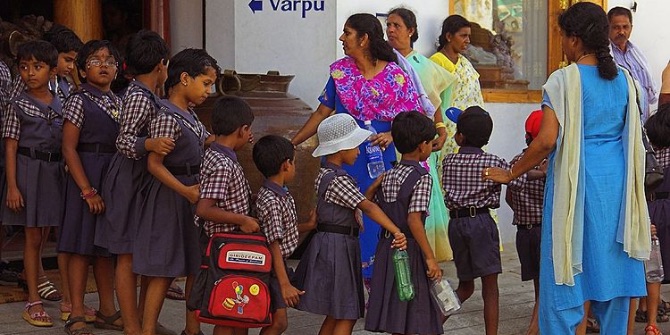LSE Professor of Economics and International Growth Centre Director Robin Burgess was in Patna, India, last weekend to attend the IGC Bihar Growth Week Conference 2013. Anisha Anand interviewed Professor Burgess about the state’s growth and prospects for the Times of India.
Q. At the inaugural session of the Bihar Growth Conference in Patna on July 20, you said you found Bihar’s growth impressive. Stats apart, what changes have you seen?
A. If I contrast the state with what it was during my visit in the year 1995, I notice a sea change in terms of infrastructure and crime rate. People now move around in the evening without worrying about their security. No doubt, Biharis are the best brains and some of the best doctors practicing across the world are Biharis. The only problem is, those best brains are spread across the globe and not inside the state.
Q. What do you feel is the best move made by Nitish Kumar as the chief minister to prove he is a worthy leader of the state?
A. His best strategy was to post the best, most talented and hardworking IAS officers on key positions of bureaucracy and give them adequate powers. This is how an ideal democracy ought to work, where ministers give the ideas and civil servants execute them. The period prior to Nitish coming to power was the period when Bihar was called a failed state. A failed state is a state which does not serve its citizens. With Nitish at the helm, however, people started believing this man would give them development. I don’t think any other poor state like Odisha or Madhya Pradesh has put so much emphasis on public welfare.
Q. A lot has been said of late about Bihar’s model of growth. Do you feel the Bihar model should be emulated for the betterment of other states as well?
A. With a set of strong leaders and bureaucrats at the helm, people were delivered many things—like teachers, new institutions, and welfare schemes such as the bicycle scheme. Also, caste-based politics gave way to development politics, thanks to your CM’s focus on a development agenda. Yes, such a development policy may prove fruitful for other states in the country.
Q. Our CM has also put emphasis on quality education and a number of good educational institutions have come up in Bihar recent years. Yet, migration of students to other states continues. What could be the reason?
A. Frankly speaking, if I were asked to give a subtitle to Bihar, I would call it ‘Educational State’. For, the thirst the people here have for education is not seen anywhere else. Even poor parents are conscious enough to provide good education to their children, but the only problem is that they send their children outside the state for studies because they feel there are better employment opportunities outside the state. Bihar lacks industries – pharmaceuticals, software, biotechnology – and, as such, students feel a seat in IIT-Kanpur or IIT-Kharagpur is better than that in IIT-Patna.









1 Comments